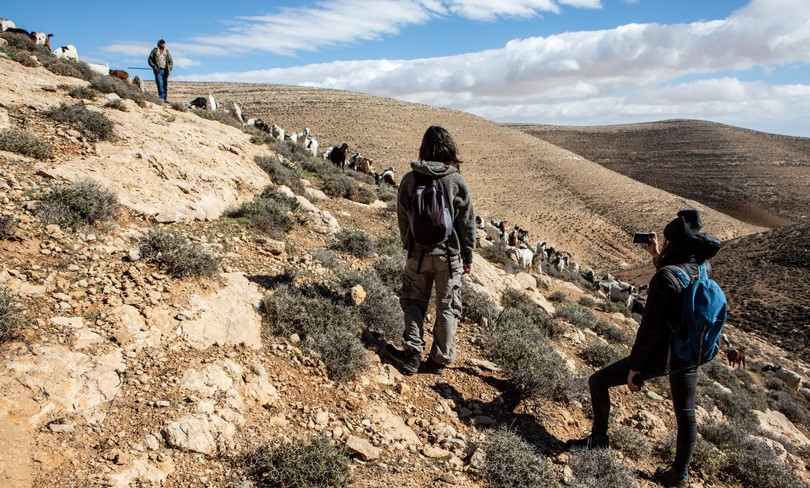
With the ongoing, devastating war in Gaza and the threat of all-out war with Hezbollah along the Israel-Lebanon border, many in the diaspora and Israel have not been focused on the dramatic rise in settler violence. According to NIFC project partner Yesh Din, 2023 was the worst year for settler violence in decades. While settler violence was already on the rise prior to October 7 – with settlers emboldened and empowered by the then-newly-elected far-right Netanyahu government — there was a significant spike in these attacks after October 7. The violence has intensified in waves throughout 2024.
The pervasiveness of settler violence is often misunderstood, but it is everywhere across the West Bank. Just in the last couple of months, violent settlers have beaten Palestinians with batons in Susya, burned fields in Rujib, and set fire to a Palestinian car that accidentally drove into a settlement.
Yesh Din, which documents settler violence, has explained that these attacks are often “part of a calculated strategy for dispossessing Palestinians of their land,” and thus often occur at the site of Palestinian villages or farmland where settlers hope to build outposts – illegal under both Israeli and international law.
NIF is seizing the moment. NIF’s “Vision of Security and Peace” program, which was put into practice in recent months, aims to “block” moves toward entrenching the occupation and to “build” support for a diplomatic solution to the conflict that advances a vision for Israel’s future based on peace, democracy, and justice. Some of this “blocking” comes in the form of providing various supports — legal, mental health, networking, and others — to activists on the ground.
NIF’s approach has shifted over time to account for settler violence. One tactic we’ve embraced is called “protective presence.” It entails Israeli activists going with Palestinians as they attempt to tend to their crops or shepherd their sheep. The accompanying activists document settler violence and vandalism if it occurs. This is a form of direct solidarity with Palestinians at risk, and it can be very effective in deterring settler violence. The purpose of protective presence is not only to reduce settler attacks on Palestinians but also to provide the Palestinians most at risk with a sense of security and the knowledge that they are not alone.
One NIF grantee Rabbis for Human Rights (RHR) is currently organizing its yearly campaign to assist, protect, and volunteer alongside Palestinian communities across the West Bank during the olive harvesting season (from mid-October to the end of November). During last year’s harvest — which began days after October 7 — settlers burned thousands of olive trees and committed dozens of violent attacks. This year, RHR is working hard to create a protective presence by recruiting volunteers to work directly alongside Palestinian farmers during the harvest.
RHR is not alone. Earlier this month, NIFC project partner Breaking the Silence and NIF grantee Peace Now led a convoy of activists to the village of Zanuta in the South Hebron Hills, a site of so many settler attacks that the villagers had fled in fear. Attacks against Zanuta have intensified ever since Yinon Levy, a violent settler who has been sanctioned by the United States, established a nearby illegal outpost. Zanuta’s villagers have recently been able to return to their homes and, alongside activists, are rebuilding the school that settlers destroyed in their absence.
Summud is an Arabic word meaning steadfastness. It is often used in reference to Palestinian villagers who, despite living under constant threat of demolitions or settler violence, insist on remaining in their homes in Area C. By doing so, they refuse to submit to the culture of fear that the extremist, supremacist forces in Israel are working so hard to create. The opposite of fear is solidarity — which is exactly why protective presence is an effective and essential tool to push back against these forces of chaos and violence.
For an in-depth look into what’s happening in Palestinian villages in Area C of the West Bank, listen to our latest episode of Groundwork, which features Elisheva Goldberg, Senior Director of Media and Policy on settler violence, protective presence, and steadfastness.
